January 29, 8:00 PM Literature
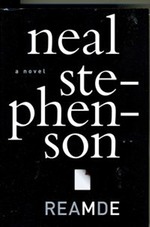
I am now at the half-way point in this story. The last couple of hundred pages have been amazing. Hopefully the pace will slow down a tiny bit so I can catch my breath.
January 26, 1:00 PM Literature

I sat down this morning and read the 3rd and 4th chapters of "Rumi: The Big Red Book". I continue to be impressed with how timeless his poetry is."
"This is the conversation of being a human being,
the living doubleness.
Cool and in motion like water,
Placed and passionate like fire." [p 44]
"The heart sees the joy of early dawn, the breeze.
What have you seen? What have you not seen?" [p. 45]
"We are a hundred thousand years beyond insanity.
Plato does not speak of this." [p. 47]
"Pumpkin begins climbing a rope. Where did he learn that?" [p. 50]
"The sky answers, All motion has a reason." [p. 54]
"Let me rest a minute,
to let my mind come back and help me describe it to you." [p. 55]
"But do not be satisfied with stories,
how things have gone with others.
Unfold your own myth," [p. 66]
January 25, 7:00 PM Literature
My early morning musings reminded me about my readings of Rumi. I reread the introductory sections from "Rumi: The Masnavi. Book One". Rumi lived about 600 years after Mohammed, and was a recognized scholar and leader of a branch of Islam known as Sufism.

"Towards the end of his life he presented the fruit of his experience of Sufism in the form of the Masnavi. which has been judged by many commentators, both within the Sufi tradition and outside it, to be the greatest mystical poem ever written." [p. xiii]
"The Masnavi leaves the impression that he [Rumi] was brimming with ideas and symbolic images which would overflow when prompted by the subtlest of associations. In this way, free from the constraints of a frame narrative or a strict principle of order, Rumi has been able to produce a work that is far richer in content than any other example of the mystical masnavi genre." [p. xxiii]
Many of the sections in the Masnavi are similar to the parables in the Bible, or to Aesop's fables.
January 23, 5:00 PM Literature

I am making good progress with REAMDE. It is a fast-paced yarn with lots of tech jargon. The story line is based on the articles that appeared a couple of years ago about the relationship between the virtual money of some popular multi-player role playing games and the real money of everyday use. Throw in the Russian mafia and the Chinese hackers and you have a high action, high drama scenario, and in this case a long one.
January 22, 9:00 PM Literature
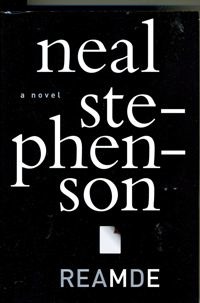
I have begun a new novel, "REAMDE", by Neal Stephenson. This is a modern sci-fi novel that takes place in the present and involves the high-tech gaming industry. A nice break from more serious matters such as Literary Theory. This is another thick description book, about a thousand pages, but it reads easy.
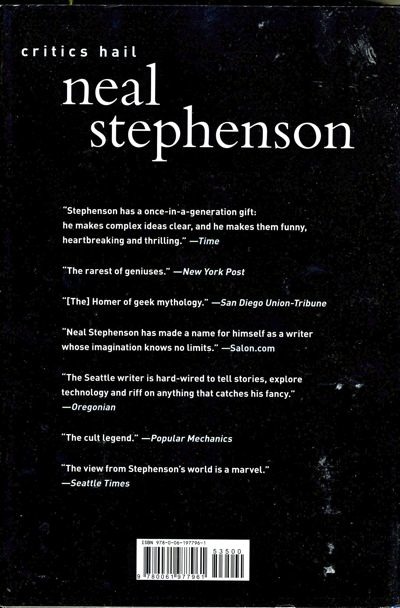
January 21, 4:00 PM Literature

I began the day by deciding whether to read Garber's chapter on "The Two Gentlemen From Verona" from her huge book "Shakespeare After All" or to read the play first and follow that with Garber's commentary.
I opted to read Garber's chapter first. This is the opposite of what I would do if I were about to read a novel. I think it was a good decision.

With Garber's comments in mind I was able to focus on the actual writing of the play since I already had a good sense of the overall plot. The wit and word play was a delight. I can honestly say that I thoroughly enjoyed reading the play.
I like Garber's idea of ordering her chapters for each play by the order in which the plays were written rather than the more common approach of grouping all of the plays by genre (tragedy, comedy, romance, etc.). Thus I now have an immediate appreciation of just how skillful Shakespeare was as a wordsmith right from the beginning. The structure of the play itself was a little weaker with all the loose ends tidied up in a rush at the end. Basically the play was a clever mixing of two rather inept gentlemen and their early attempts at love. The women are much more sensible. It is a light play and lots of fun. I can imagine all of the people at the Globe theatre having a very enjoyable afternoon with lots of laughter and guffaws at both the dialogue and the efforts of the actors.
As an aside, with each book being close to a thousand pages, it was a much lighter task reading them as ebooks on my iPad2.
January 20, 6:00 am Literature
I am still immersed in dangerous waters. Now that I have Garber's book on Shakespeare on my iPad2, it seems to make sense to also put Shakespeare's complete works on the same device. There are a number of such files available at prices of only a few dollars. This could become addictive.
I have also noted that a similar book is available for Charles Dickens.
[9:00 am Addendum]
I am now swimming, although drowning might be a better metaphor.
I have now downloaded the complete works of Shakespeare, Dickens, and Sir Walter Scott. Each collection cost $2.99.
The Dickens collection is personally special as I have often wanted to have a complete collection but could never find a hard cover set that seemed to do that. Now I have an ebook that includes all 60 complete works. I had no idea there were so many!
[5:00 PM Addendum]
I have now finished reading the second chapter of Garber's "The Use and Misuse of Literature" which discusses the use and misuse of the terms use and misuse while reviewing the general themes of Literature Criticism during the last century.
I have almost finished the first chapter of her book "Shakespeare After All" and will soon be beginning "The Two Gentlemen of Verona" - a play I know nothing about.
While browsing the Web I came across the following Woody Allen quote: "I once took a speed reading course and then read War and Peace in 20 minutes. It's about Russia."
January 19, 9:00 PM Literature
I am entering dangerous territory.
Having read the first chapter of Marjorie Garber's "The Use and Abuse of Literature", I turned to the back cover and noted the comments on her book, "Shakespeare After All".
I then went to the amazon.com web site and quickly found that the book was available as an ebook for $9.99. Incredible, since it is about a thousand pages. Done.
January 19, 7:00 PM Literature
The last time I was in Toronto I bought a book on Literature Theory. The book was on display as one entered the store and it caught my eye. I began reading it this afternoon and am intrigued with how my reading unfolded. Although I have read many books I have never read any on the topic of literature itself. This is a first.
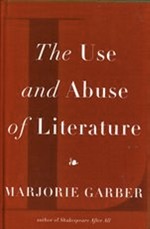
After reading about a dozen pages I realized that I was not sure where the author was going, so I started over. This time I tried summarizing each paragraph with a single sentence. Here are my notes:
1. Introduction
The 2002 US census indicated that people were reading less. Under half of US population is now reading literature. Literature was defined as fiction, nonfiction was considered as not literature. The OED first used literature to mean a written work, instead of a personal characteristic, in 1812. At one time literature meant a body of specialized knowledge. Literature has also meant anything involving words (e.g. pamphlets, papers, ...)
Thus the term Literature has had, and still has, many meanings.
The author plans to emphasize the Use of literature, NOT as an instrument of moral or cultural control, nor as an infusion of pleasure, but rather as a way of thinking.
2. Literature, Then & Now
When most people could not read or write, one who could was prized. The 19th century made celebrities of some of its writers. Today writers are praised by a smaller sub-section of society. A US poll in 2002 indicated a total absence of the classics.
What is the use of literature?
- utilitarian (better citizens, more ethically tuned reasoners)
- affective (pleasure)
"The only condition that I can think of attaching to the composition of the novel is ... that it be interesting." Henry James.
At this point I was impressed with the number of references to authors and/or their writings. About 50 different names were mentioned in the space of about 30 pages. This could intimidate one if the names failed to conjure up any recognition but it did drive home the point that the author knew of what she spoke.
Then she provided a brief outline of Literary Study. Recognizing that there is no universal, clear distinction among the various terms and labels, she goes on to say that there are three main sub-groups: Literary Criticism, Literary Theory, and Literary History.
The middle term gave me trouble. I had no idea what Literary Theory might mean. Time for a little google. Wikipedia says "Literary theory in a strict sense is the systematic study of the nature of literature and of the methods for analyzing literature." In reading the remainder of this entry I found links to close reading (which is very similar to an article I wrote on slow reading for an Ausweb conference) and also to the evolutionary psychology of religion (which is very similar to my comments yesterday on Hitchens' book).
The last paragraph of the first chapter: "We do literature a real disservice if we reduce it to knowledge or to use, to a problem to be solved. ... At a time when meanings are manifold, disparate, and always changing, the rich possibility of interpretation - the happy resistance of the text to ever be fully known and mastered - is one of the most exhilarating products of human culture." [p. 30]
I think I am going to enjoy this book.
January 18, 10:00 PM Literature
With plenty of time for reading, I had no difficulty finishing Hitchens', "god is not Great".
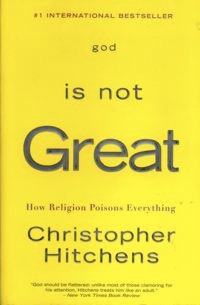 It is an amazing set of essays, all dealing with the genuine "evils" of religion. I find myself in agreement with virtually everything Hitchins says. This is the most telling book I have seen that describes and documents the historical basis for all of the religions on the planet with a natural emphasis on the triumvirate of Judaism, Christianity and Islam. The focus on history makes sense given that Hitchens' background is journalism.
It is an amazing set of essays, all dealing with the genuine "evils" of religion. I find myself in agreement with virtually everything Hitchins says. This is the most telling book I have seen that describes and documents the historical basis for all of the religions on the planet with a natural emphasis on the triumvirate of Judaism, Christianity and Islam. The focus on history makes sense given that Hitchens' background is journalism.
Now I would like to read a couple of other books on the same topic, but from a philosophic and psychologic perspective. This is where the overall topic of religion is usually discussed. From a philosophy point of view, how is it possible that belief systems that preach morality can be so immoral? And from psychology, why is religion so pervasive in our cultures? Hitchens does address the latter in a number of his chapters but our inability to see the immorality in much of what is preached is amazing.
I would have reversed the title and the sub-title. In my view, the book is about religion, not really about whether or not god exists, although this does get a fair amount of discussion. As a foot note, Hitchins sprinkles the text with a lovely dose of wit, which certainly brought a smile to me on many pages.
January 17, 8:00 am Literature
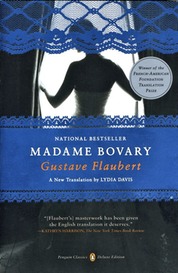
I have finished reading "Madame Bovary". Clearly this is a classic. Over a hundred and fifty years since its first publication, the story still captures the reader. Given the subject matter of the novel, I was intrigued by the combination of the original author being male and the translator into English being female. Flaubert did a fine job, but I wonder if a woman, who can write, might be able to do even more justice to the story.
I now want to read something that is non-fiction. A book that was recommended to me when it first came out is beckoning me at the moment. The author, Christopher Hitchens, recently passed away, but his mark will remain. I also bought his last collection of essays, "Hitch-22", in anticipation of more good reading. Now to have a close look at "god is not Great".

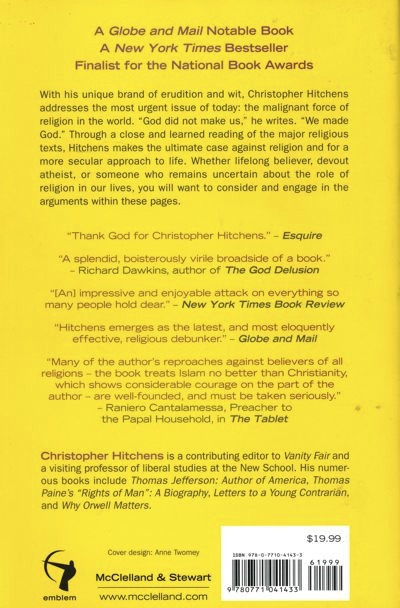
January 16, 5:00 PM Literature
A relaxing day - one real plus with retirement is that on days like today one doesn't have to go to work.

I made good progress reading "Madame Bovary". I'm not sure how it is going to end, but am about to begin reading Part III (the last part).
There is an Introduction to this new translation that begins with the sentence, "Readers who do not want to know the details or the denouement of the plot should read this introduction only after they have read the novel." [p. ix] That is me. But I will definitely read this when I have finished the novel.
January 15, 5:25 am Literature
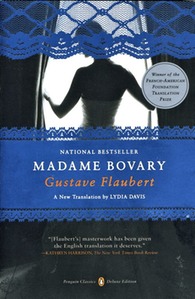
The next novel I will be reading is a classic from 1857, Madame Bovary, by Gustave Flaubert. I have seen many references to this novel over the years, but have never read it. I spotted this edition while we were in New York last fall and immediately decided to buy it. It is time to begin.
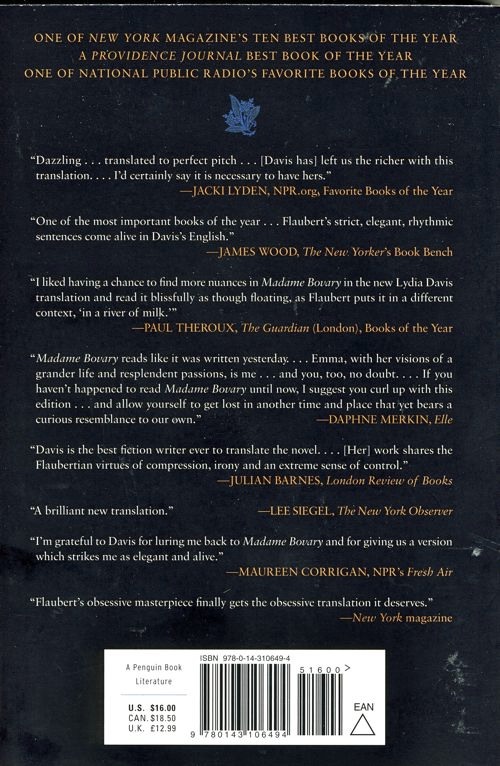
Now for a second cup, and Rumi.
January 14, 8:00 PM Literature

A truly great story! I loved it.
There were many, many great quotes. Here is one near the end of the novel:
"Courage in the face of certain defeat - that is what tragedy is." [p. 463]
January 13, 9:30 PM Literature

This is historical fiction at its best - a superb blend of good writing combined with lots of historical fact.
What started out as a neat description of what might have happened during the Sioux uprising of 1876-7, has turned into a real-life drama among the major protagonists. Not everyone will be alive at the end.
January 12, 8:00 PM Literature

Vanderhaeghe's novel is a delight on at least three counts: it is a good yarn, it provides cameo snippets of history that are new to me (I assume they are factual - but they may be part of the novel), and there are many passages that I find particularly enjoyable.
I have been making small pencil marks in the margins opposite many of these. They will help me find them later if I decide to capture some of them for this website.
For example; "So why do I take the trouble to copy choice selections of his tirade into this journal?" [p. 9].
January 8, 9:30 am Literature
Then I began reading "The Big Red Book". Here are a few more passages from chapter 2, "The Gatherer", that appealed to me.

First day of spring, beginning a whole year of spring.
Everyone outdoors talking.
...
Ground soaked; sky full of candles.
Visions of fire and water alternating.
...
I used to have mountain ranges in my chest.
Now it's smooth plain. [p. 28]
On the chessboard the king is blessed again with his queen. [p. 29]
A tailer cuts cloth uniquely for each person.
...
The needle's eye will not accept
a strand of thread that is folded double. [p. 30]
Drink enough wine so that you are stop talking.
You are a lover, and love is a tavern
where no one makes much sense
Even if the things you say are poems
as dense as sacks of Solomon's gold,
they become pointless. [p. 31]
The soul has been given its own ears to hear things
that the mind does not understand. [p. 32]
Some naive people have not gotten close enough
to smell the musk, so they cannot judge
But still they do, and others repeat
their lack of knowledge. What shall we call that?
...
It is best to follow some fragrance you catch
on your own, alone. [p. 32]
January 4, 5:40 am Literature

I have begun reading a new novel. This one is by Guy Vanderhaeghe and is called “A Good Man”. There is a section in the first few pages where a man is remembering when his mother gave him a diary where he could keep track of important events.
She goes on,

“And putting something down in ink - well, I think it concentrates the mind wonderfully - like the prospect of hanging. And ink has another advantage. It is permanent. It does not permit you to escape it or yourself ...” [p. 5]
I like it! I have never seen the argument that ink is permanent viewed as an advantage. Word processors permit revision, both immediately and later, and this is usually trumpeted as an advantage. I can now see the other side of the coin.

I have finished reading the first section of“Rumi: The Big Red Book” by Coleman Barks. Barks has organized Rumi’s poems into 27 sections.
Barks ends his introduction with the following:
“We must not be led by the mind, but by the spontaneity in the heart-center, the soul, which is always starting out, beginning again. It cannot be said with words. Music and song do better.” [p. 15]
I find myself both agreeing and disagreeing. The trick is to find the appropriate balance for each particular situation. But I like the idea of recognizing the importance of the “spontaneity of the heart-center”.
January 3, 6:00 PM Literature
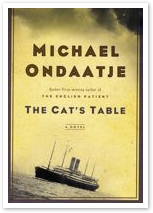
I have finished reading “The Cat’s Table”. This is a novel that grows on one as one continues to read it.
This is a fascinating novel. It is truly the work of a craftsman.
I have also begun reading “Bhagavad-gita”. I have finished rereading the first chapter and am now in the early stages of the second chapter. I must admit that I am enjoying it.
January 1, 8:00 PM Literature
We returned to our room after a nice meal of tandori chicken in the motel restaurant. I was continuing to read “The Cat’s Table” when I came across a reference to “The Bhagavad-gita”. I began reading this a few months ago and then I moved on to other activities and forgot about it. This will make another good new year’s resolution - to begin reading this again.
January 1, 11:00 am Literature
We returned to the hotel to do a little reading before driving out to Stony Plain. While reading “The Cat’s Table” by Michael Ondaatje I came across the following sentence: “... the man knew what good tea was.” [p. 81]. This struck a responsive chord in me. Perhaps it was because I had yet to make any new year’s resolutions. Now I had one. I would try drinking tea again.
December 29, 2:20 PM Literature
Back from a brief shopping trip to buy a pair of pants. The brand that had been wearing is no longer available so I picked a couple of others and was soon on my way.
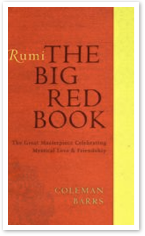 Now to sit back, sip a coffee, enjoy the fireplace, and read a little Rumi. Both books (“The Big Red Book”, “The Masnavi – Book One”) should be read slowly, and in small doses. The Masnavi is written in iambic pentameter verse with many of the pieces a few pages in length. The Big Red Book on the other hand is written in free verse and is more poetic.
Now to sit back, sip a coffee, enjoy the fireplace, and read a little Rumi. Both books (“The Big Red Book”, “The Masnavi – Book One”) should be read slowly, and in small doses. The Masnavi is written in iambic pentameter verse with many of the pieces a few pages in length. The Big Red Book on the other hand is written in free verse and is more poetic.
Here are a few lines from The Big Red Book that I liked:
Is there love, a drawing together of any kind,
That is not sacred? [p. 16]
Learn the alchemy true human beings know:
The moment you accept what troubles you’ve been given,
The door will open.
Welcome difficulty as a familiar comrade. [p. 16]
This windy mountaintop trough is ours.
It sustains and protects, and you do not arrive here
By just straining your neck to look at the mountain. [p. 17]
Rise. Do not keep stirring the heavy sediment.
Let murkiness settle. [p. 18]

I have now read the following passages from The Masnavi – Book One:
Exordium: the song of the reed [p. 4 – 6]
How a king fell in love with a sick slave-girl and tried to cure her [p. 6 – 19]
The tale about the grocer and the parrot: the parrot spills oil in the store [p. 19 – 23]